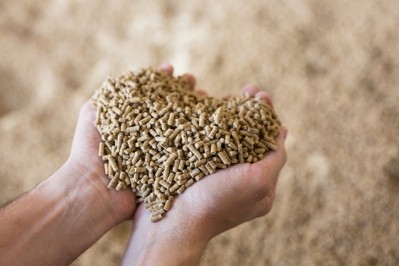PFI: Current US regulatory landscape for pet food is 'muddled'

The organization’s concern around the current regulatory process overseen by state governments was voiced during the recent Petfood Forum 2023 convention in Kansas City, Missouri.
Essentially, the PFI wants to detach pet food from state oversight, end AAFCO’s role in the pet food ingredient approval process, and subject the industry to federal regulations only.
Regulatory requirements
US pet food makers operate under two different sets of regulatory requirements. In one case, those issued by the US Food and Drug Administration (FDA) and separately those requirements found within each state’s commercial feed law. Enforcement for these regulations also occurs both by federal and state officials
The FDA regulates both finished pet food products and their ingredients. Nearly all states also require products sold therein to be registered, and for their labels to adhere to strict requirements regarding product names and ingredients. An ingredient cannot be used in pet food until it has been accepted by FDA and adopted by the Association of American Feed Officials (AAFCO), the organization of state regulatory officials that develops model bills and pet food regulations that states can adopt into their respective state laws and regulations.
Muddled regulatory landscape
The current patchwork system is becoming too challenging to navigate for pet food companies in terms of product registration per state, said the institute.
“We've exhausted every other option to think about how we work within the current system,” said PFI CEO, Dana Brooks, during a panel discussion at the Kansas event. “And then coming out of that, there's really only one answer and it's one federalized system.”
The trade body maintains that one challenge to the process, in general, and to the ingredient definition process, specifically, is that AAFCO is a voluntary organization that creates non-binding model legislation and regulations that a state can adopt in whole, in part or not at all, into their own state’s commercial feed law.
It alleges that AAFCO does not have the resources or specific expertise required to effectively review ingredients for pet food, at least not in the same manner as it reviews ingredients for animal feed. "Once an ingredient is defined by AAFCO, inconsistent interpretation across states creates a muddled regulatory landscape for pet food,” reads comments the PFI submitted following the FDA CVM public meeting in March.
Pet food needs an ingredient reviw process that fosters innovation, provides assurance to the consumer, and follows clear and consistent timelines, it added.
Finding common ground
In a recent blog post, Constance Cullman, CEO of the American Feed Industry Association (AFIA) said while that organization has not seen PFI's final proposal on regulatory change, it knows that it calls for federal pre-emption on regulating sales and assessing fees and, in doing so, eliminates one of the three pathways companies can now use to register new ingredients for use in pet food.
She said the AFIA is currently engaging with its members, its leadership, other organizations within the animal food industry and regulatory agencies to gauge their position on this, to try to find common ground to solve these issues.
“For now, we have preliminary questions about how this proposal could impact federal and state resources and our feed, pet food and animal food ingredient manufacturing facilities.
“The animal food system is…well…a system. When one part of that system is carved out in regulation, it creates an avalanche of impacts for the rest of the system.
“One of the more obvious impacts is on the ingredient suppliers. If this proposal proceeds as outlined, those companies would be forced to comply with a duplicative, dual registration process at the state and federal levels, doubling their costs and potentially facing differing data requirements. Impacts are not limited to the industry but will also be felt by both state and federal regulators and their association, AAFCO – some of those impacts may be warranted and long overdue – others may have implications for those of us, whom they regulate.”
Risk of weakened regulatory oversight
AAFCO executive director, Austin Therrell, also weighed in on the PFI proposals, in a statement released yesterday.
“PFI’s proposal for a new federal regulatory system is not as simple as it may appear. AAFCO believes a federally regulated approach is not in the best interest of pets or pet owners.
“AAFCO predicts that a federal-led system will significantly decrease the number of qualified inspectors in the marketplace and reduce the regulatory oversight of pet food and pet food ingredients. In addition, prohibiting state-led inspections at manufacturing facilities across the country would eliminate the routine collection of tens of thousands of samples for potential contaminants or adulterants, which may dangerously impact animal health and reduce consumer confidence in the marketplace.”
Marketing claims
The current integrated food safety system includes state agencies that work independently under their own legal authority, and in partnership with the FDA to ensure feed safety across the US, said the AAFCO lead.
“Many state feed programs review and inspect thousands of pet food labels to make sure they contain all the required information for the consumer and don’t make unsubstantiated nutritional or marketing claims prior to products being available for sale to consumers. States also have dedicated employees to quickly follow-up on consumer complaints.
“PFI’s proposal would prohibit these critical state programs from assessing registration fees, requiring label reviews or premarket approval, and any other attempts to regulate pet food sales.”
A completely federalized system would offer pet food manufacturers a loophole to avoid state inspections, sampling, and the oversight of marketing claims, he claimed.
Therrell added: “State feed programs are more accessible and equipped to inspect and regulate pet food, that they have inspectors in the field everyday with eyes on the products, on the local manufactures, and on the distributors and retailers. “A single federal regulatory system, without these local state partnerships, cannot have this level of awareness and surveillance in the marketplace to respond and take action on illnesses, recalls and issues quickly and effectively.”








